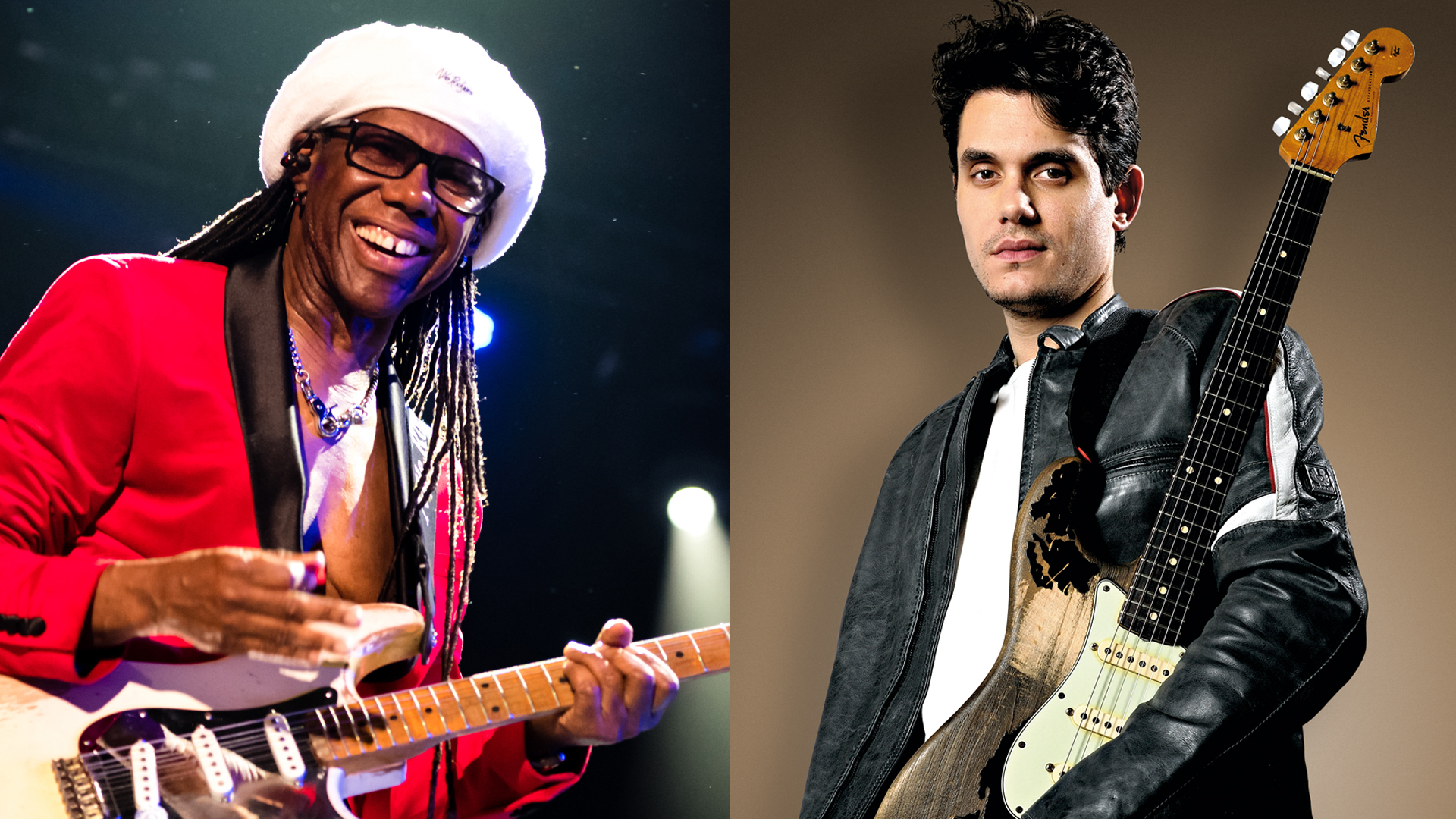“And in comes this thin, 98-pound, translucent dude.” The guitar legend who launched David Bowie and John Lennon to the top of the charts, got high with Paul McCartney and talked back to Chuck Berry
Carlos Alomar reveals the stories behind some of his wildest adventures with rock and roll royalty
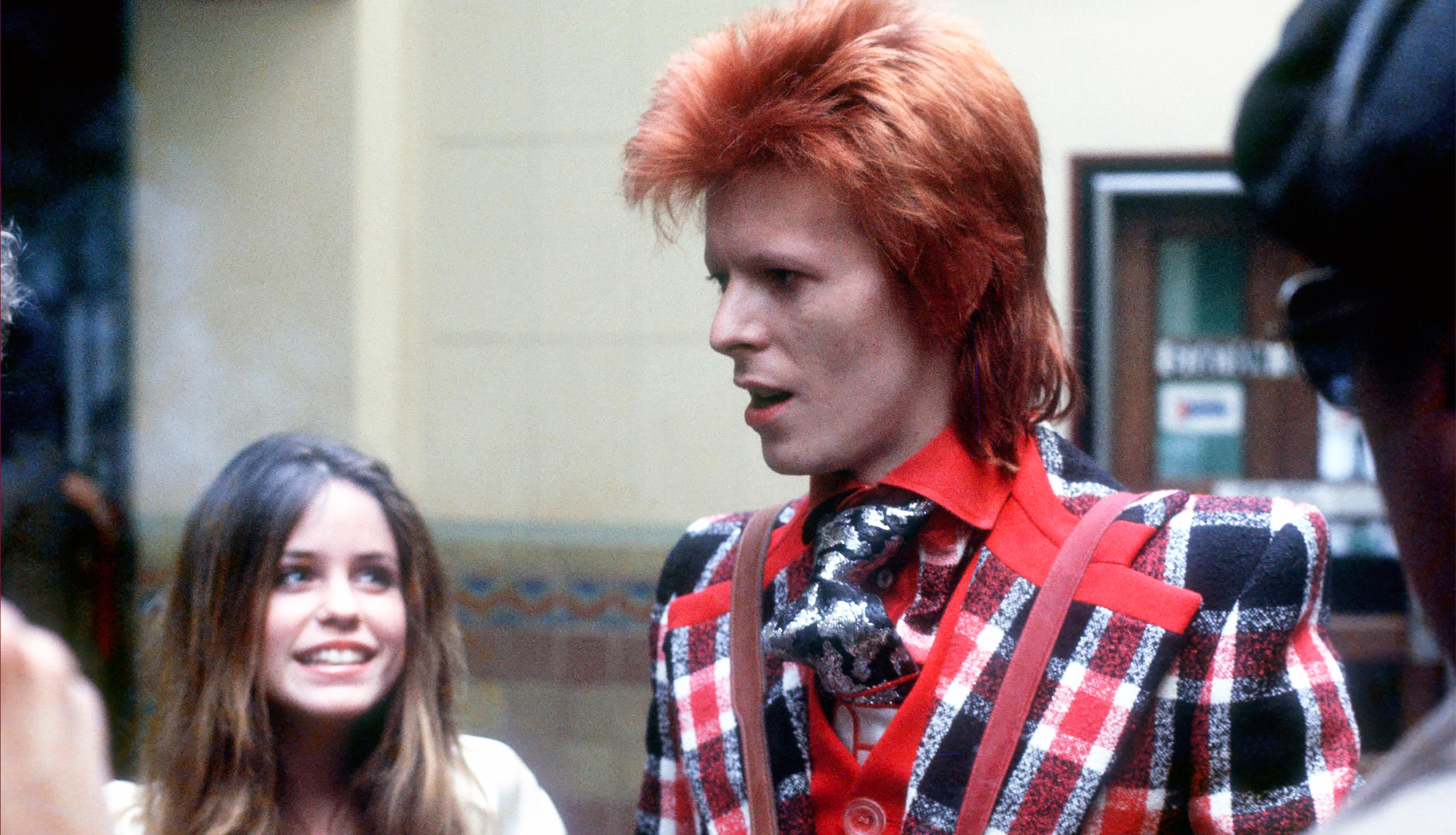
All the latest guitar news, interviews, lessons, reviews, deals and more, direct to your inbox!
You are now subscribed
Your newsletter sign-up was successful
After nine years away from the stage, guitarist Carlos Alomar is touring once again in memory of David Bowie and the D.A.M. Trio. Featuring drummer Dennis Davis, Alomar and bass guitarist George Murray — D.A.M. was an acronym made up from the initials of their last names — the trio backed up Bowie in the 1970s on critical albums like Young Americans, Station to Station, Low, “Heroes” and Lodger. on which the singer redefined his sound
Alomar has been working on the education side of things lately, but says the California wildfires of 2024 and the fact that he felt he could have lost his old pal in rhythm, bassist George Murray, influenced his decision to hit the road one last time. His celebration of life, family, and music is a reminder of his career recording and performing with rock and roll royalty, including Chuck Berry, David Bowie, John Lennon, Paul McCartney, and many others.
To that end, Alomar dialed in with Guitar Player to dig into his memories of working with those greats.
“It’s fortuitous that it happened, but it never happened the same way every time,” he offers. “So I cherish the moments that we have, because those little moments in time should be cherished and shared, but never really repeated.”
Chuck Berry
“I got this phone call to do a job at the Rye Playland [in Rye, New York, north of New York City]. It was an amusement park, but they had entertainment there under the giant tent and everything. I get there and in walks Chuck Berry with his electric guitar. He walks right up to us and says, ‘When I do like this’ — and he takes his headstock and moves it sideways — ‘you stop.’
“‘And when I do like this’ — and he moves his headstock up and down — ‘you play.’ That was it.
“He turns around to walk out, and I said, ‘Come on…’ I was maybe in my early twenties and naive. I said, ‘Excuse me, Mr. Berry, are we gonna rehearse?’
All the latest guitar news, interviews, lessons, reviews, deals and more, direct to your inbox!
“That man turned around and looked at me and said, ‘Boy, I ain’t gonna rehearse rock and roll.’
“He turned around, walked out.

“We hit that stage in true form. And every time that headstock went up, every time that headstock went sideways — bam! I mean, it was amazing, and to this day, I still kind of conduct the same way that Chuck Berry did. [laughs]
“To me, the biggest lesson was you don’t rehearse rock and roll. You either know it, or you don’t.
“But I also learned that you did not talk to Chuck. Chuck talked to you. And how do I remember him? As a mean drunk. [laughs] You only remember your last experience with someone. It’s like a song: You can do a whole song, but if you mess up the ending, all you remember is the messed-up ending. Chuck Berry is like that song. It was great. But at the end, he came and stunk that up real good.”
David Bowie
“I was a session musician for RCA Studios when I got called to work on David Bowie’s Diamond Dogs album. I was in a session, and in comes this thin, 98-pound, translucent dude with white skin, orange hair, fedora — everything. I was like, ‘Whoa, dude, you look like crap. You need to come to my house and get a home-cooked meal.’ [laughs]
“Little did I know he would take me up on it. We got on really, really well. I took him to the Apollo Theater, and he met [comedian] Richard Pryor, of all people, who was opening for [soul group] the Main Ingredient, which I was playing with. And then, I took him to the Latin clubs to hear some Latin music. We just hung out. There was no work.
“His intelligence was really amazing. I started talking to him about the chitlin circuit and James Brown — man, I found out at that moment how much the Brits studied Black music. Not only was I impressed with his intellect and his knowledge, but I was also impressed with his accent. You gotta remember, I was a kid from the Bronx, and I’m speaking to a Brit with that weird accent. So I was very curious.
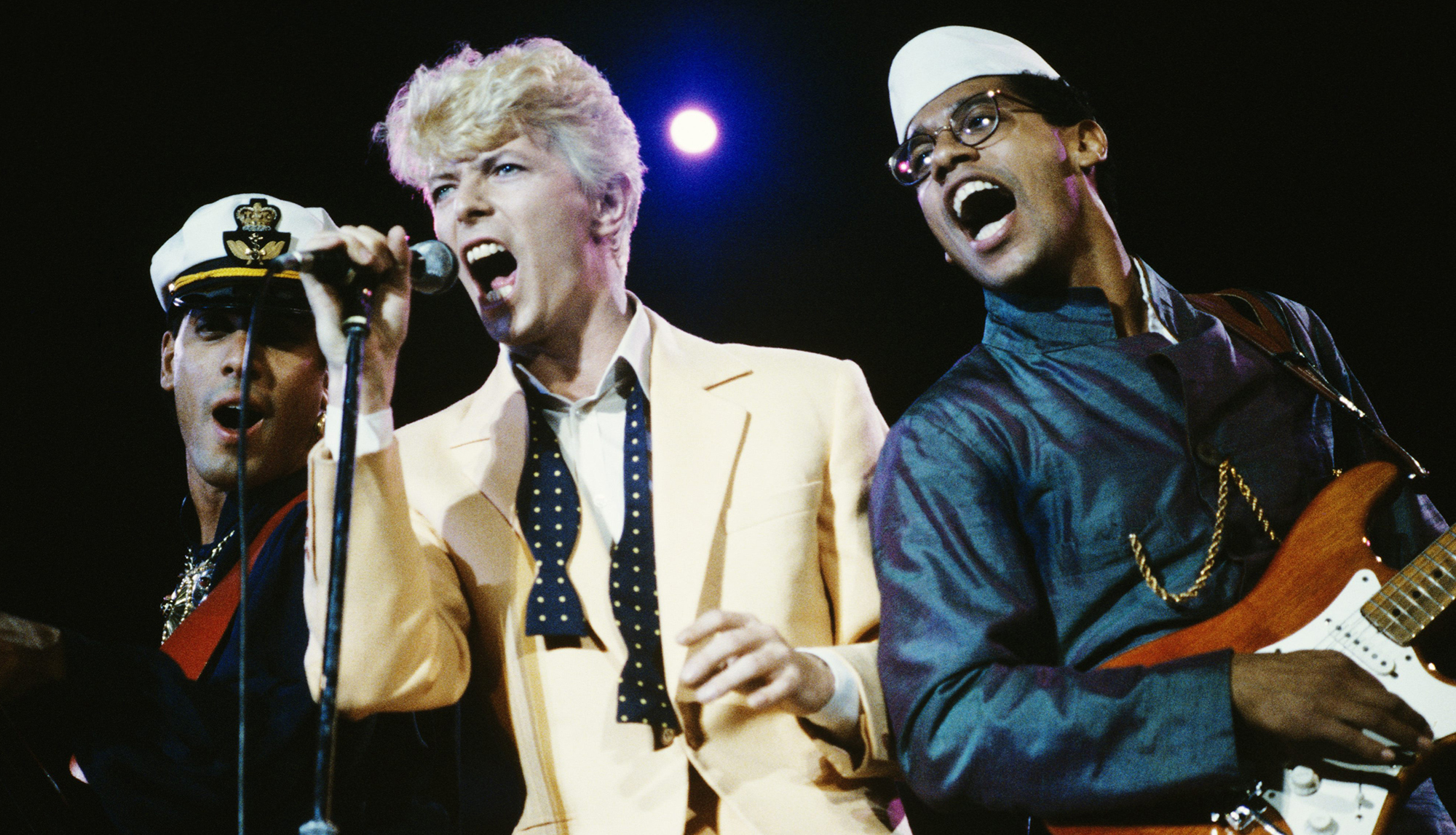
“Eventually, he told me he was doing his Diamond Dogs album, but there was no money. There was no way I was gonna drop my gig with the Main Ingredient for this gig with no-paying David Bowie. [laughs]
“So I turned him down. Then later, after the Diamond Dogs album and tour, I got another phone call, and I turned him down again. He was very disappointed. I told him, ‘I’m married. I can’t take a pay cut like this.’ David said, ‘I’ll take care of it.’
“And that was it. He took care of it. So from there we formed the band that relaunched his career with Young Americans.
“The last time I talked to David was at a birthday party. I didn’t realize that he was under the grip of his own demise. Although we had a good time, I didn’t realize that was our goodbye. That was it. Later on, I found out what was happening, and then of course, it affected me deeply. It was a pretty brutal year.”
John Lennon
“One day, I was in the studio, and in walked David Bowie with John Lennon and May Pang [Lennon’s girlfriend during his separation from Yoko Ono]. At the time, I didn’t really know who David Bowie was. But hell, I knew who John Lennon was. And John Lennon was a character who understood who he was.
“We had the groove down for ‘Fame’ [Alomar wrote the song’s underlying funk riff], but that was all we had at the time — not even the words. John came in with just an acoustic guitar, and they said, ‘Would you like to play?’ and he said, ‘Sure.’ And every time he would play, he would sigh the word ‘fame.’
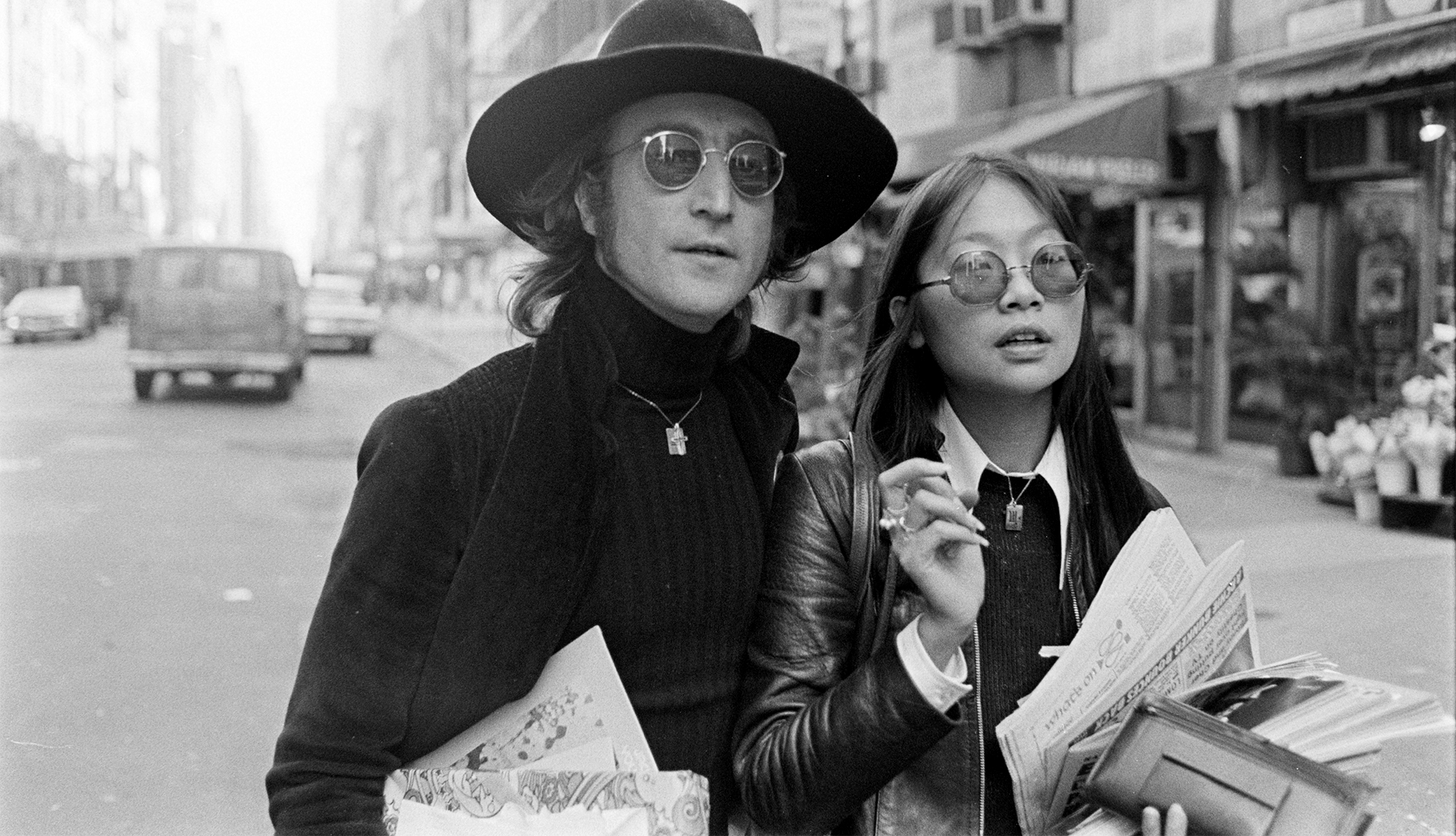
“They left to go to dinner and invited me, but I decided to stay and put some parts down. But I kept hearing that sound that John had been making. So we isolated his track, and we could hear him playing the guitar and saying ‘fame.’
“And that’s how the song became ‘Fame.’ It was my first number one hit. I was young and sandwiched between David Bowie and John Lennon on the song.”
Paul McCartney
“I had just finished writing with Mick Jagger when I was invite to work with Paul on his next album [1986’s Press to Play] at his studio, Hogg Hill Mill, in England.
“He was just the most endearing individual, very self-effacing, and his family was just so inviting and friendly. We walked upstairs to a studio filled with equipment. There were the Vox amplifier, the Höfner bass, the Mellotrons… I was drooling, man. [laughs]
“As I’m taking all that in, the man proceeded to roll the biggest spliff I’ve ever seen in my life. [laughs] I thought I was back in Jamaica! We talked about all kinds of music, and the Black experience. Again, I was reminded of the way the British studied R&B music and their curiosity, and, with all due respect, the way they always give proper respect to the African-American experience, the blues, and all the music we’ve done. They really hold it in high esteem, and rightfully so, you know?
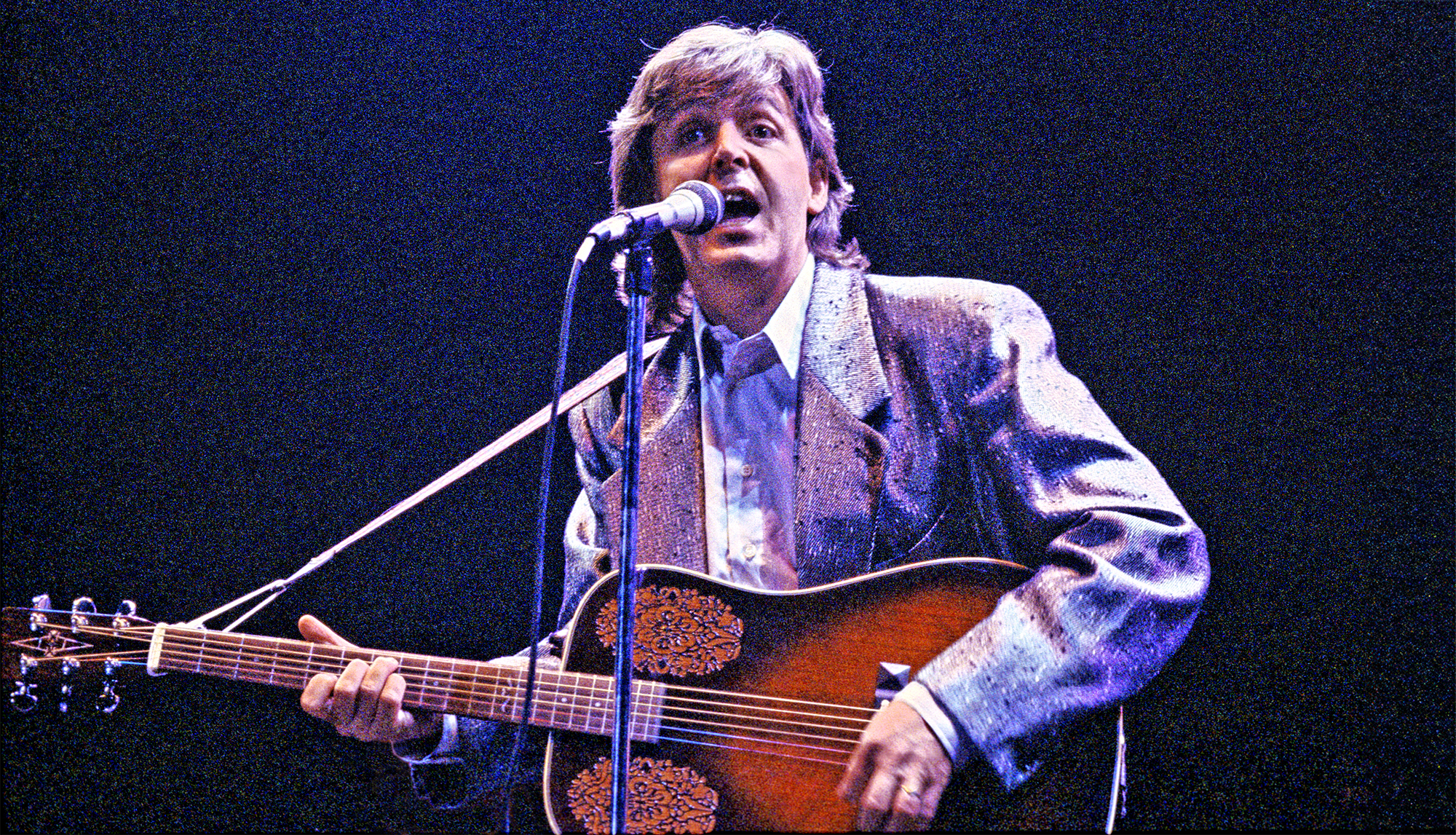
“So he played me his first track, and I said, ‘Oh, sorry, Paul, I like what I hear, but I don’t hear myself in that.’ Same with the second track. I said, ‘Respectfully, I think it’s just great, so that I wouldn’t touch that one.’
“When we got to the third song, I said, ‘Oh, yeah, I hear something in that!’ So I’m just practicing, you know, putting little things out there. Little did I know that Paul was recording all of that. The minute I got the record home, I listened to it, and was like, ‘Oh, my God, I thought I was just practicing!’ So it was just a wonderful experience.”
Andrew Daly is an iced-coffee-addicted, oddball Telecaster-playing, alfredo pasta-loving journalist from Long Island, NY, who, in addition to being a contributing writer for Guitar World, scribes for Rock Candy, Bass Player, Total Guitar, and Classic Rock History. Andrew has interviewed favorites like Ace Frehley, Johnny Marr, Vito Bratta, Bruce Kulick, Joe Perry, Brad Whitford, Rich Robinson, and Paul Stanley, while his all-time favorite (rhythm player), Keith Richards, continues to elude him.
